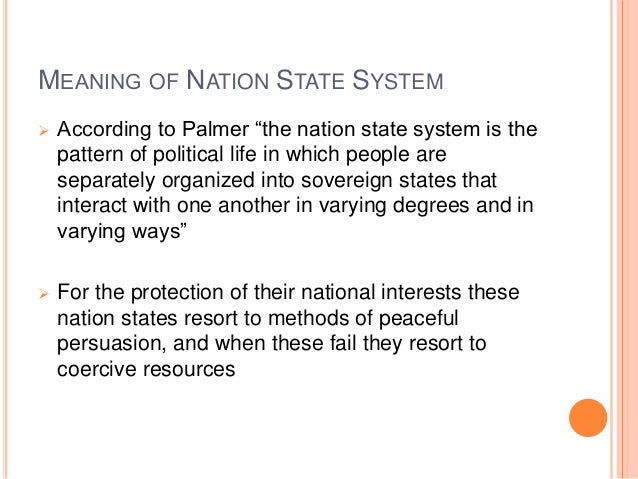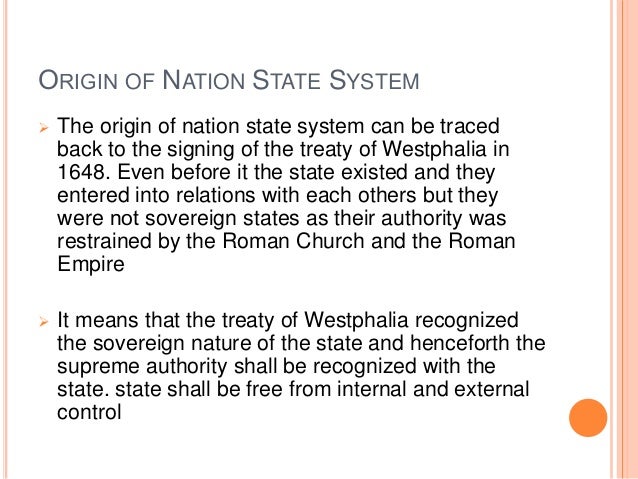LONG LIVE THE NATION-STATE
Relevance: Sociology: Nation & state & G.S paper II: Polity International Relations | Topic: India’s Foreign Policy evolution and changes

Nation and State
A nation is a nationality which has organized itself into a political body either independent or desiring to be independent. The state is a territorially organized people. Nationality is a group of people who feel their uniqueness and oneness which they are keen to maintain.
If this group of people happen to organize themselves on a particular territory and desire independence or are independent they form a nation state. The members of a state may belong to different nationalities.
Nationality is subjective, statehood is objective. Nationality is psychological, statehood is political. Nationality is a condition of mind whereas statehood is a condition of law. Nationality is a spiritual possession whereas statehood is an enforceable obligation. Sovereignty is emphasized as an essential element of state but not of nation.

Nation signifies consciousness of unity prompted by psychological and spiritual feelings which may or may not be sovereign. The physical element of sovereignty is not as important as the psychological element of the feeling of oneness.
COVID-19, a global menace, has demonstrated the resilience of the nation-state often portrayed as antediluvian by the advocates of globalisation. It has ended up strengthening the relevance of national boundaries as the major instrument for the control of the spread of the virus. One of the first things that governments have done is to close borders and stop international travel.
Even some members of the European Union have imposed entry restrictions on citizens of fellow members with a high number of infections. The precept “the nation state is dead” has been turned on its head and replaced with “long live the nation state”.
The COVID-19 outbreak has demonstrated that national boundaries are seen as the principal barriers to the spread of the disease. Air traffic across most state boundaries has either been halted or drastically curtailed and foreign citizens have been denied entry into national space.
Even the search for a COVID-19 vaccine has become a matter of international competition. For the U.S., Europe and China, national pride is at stake in this race. Accusations have been made that the U.S. is attempting to poach European, especially German, advances towards finding a vaccine in an effort to outdo its competitors.
Self-perceived great powers such as the U.S. and China are especially worried that their inability to control the virus and find antidotes to it could not only lead to loss of face but also in the long run irretrievably erode their image as great powers with the capacity to set the international security and economic agendas.
American commentators and policymakers are especially concerned that their failure to act quickly and lead the world in finding a solution to the crisis could even result in a reversal in the global pecking order with the U.S. losing its pre-eminent position to China.
National pride and national security issues have thus become irretrievably intertwined with the search to combat COVID-19. All this is happening while simultaneously political leaders and pundits are making statements daily about the urgent need for international cooperation to prevent the spread of the disease.
It is obvious that practice in the time of the pandemic is exactly the opposite of the orations about the need for global cooperation to combat it. Moves such as closures of borders and bans on commercial international flights make sense for the simple reason that the effective structure of governance is largely circumscribed by national boundaries.
Laws are made and enforced by state authorities. Despite all the talk of global governance, supra-national bodies, whether regional or global, have very limited capacities to control the day-to-day lives of human beings. And a pandemic such as this needs effective methods of ordering the lives of citizens. Only the state and its representatives can perform this role.
Moreover, human beings obey orders not simply because they are issued but because they consider the issuing authority legitimate and, even more, identify with it at an emotional level. No matter how ineffective or bumbling national governments may be, their legitimacy as authoritative institutions is far greater than that of any competing institutions.
People’s emotional identification with them because of the sense of national identity drilled into their consciousness from an early age also make them comparatively far more effective institutions for the enforcement of orders especially in times of crisis.
It is no wonder therefore that the pandemic has also become a major source of resuscitation for the nation-state that for the last few decades has been facing challenges from advocates of globalisation. It has demonstrated that the nation-state is not only alive and well but absolutely essential particularly in times of crisis and that the rhetoric about its imminent demise is vastly exaggerated.
For more such notes, Articles, News & Views Join our Telegram Channel.
Click the link below to see the details about the UPSC –Civils courses offered by Triumph IAS. https://triumphias.com/pages-all-courses.php

